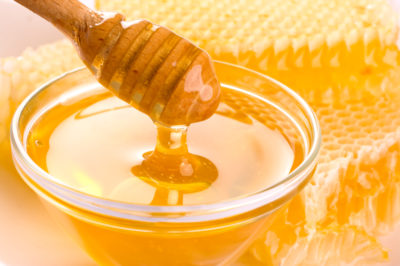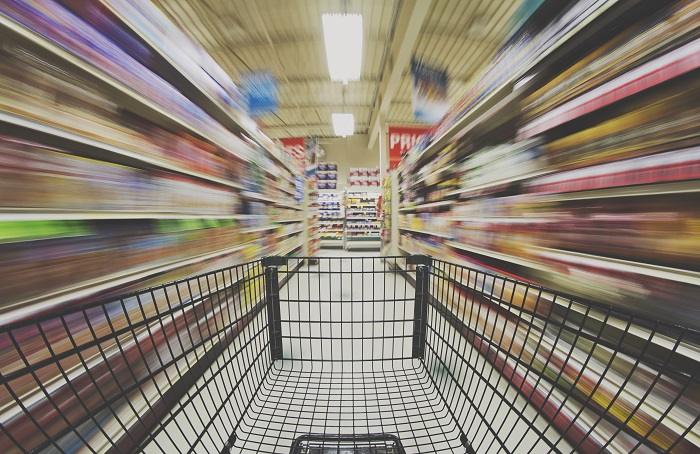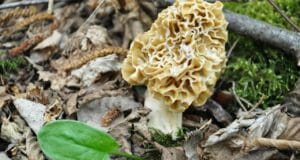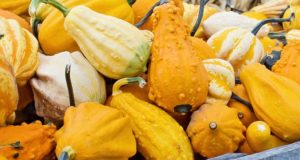Those of us who have been storing food for a while probably have a pretty good assortment of food in our stockpile. We may have started out with just a few basics, but over time, we’ve been adding to it. In some cases, our survival pantry has reached the point where we’ll probably eat better in an emergency than we do on a day-to-day basis.
But none of us started out that way. Whether we started out by buying a few bags of rice and beans or some prepackaged survival foods, our budding stockpile really didn’t have all that much selection. It was about survival, not about taste.
The thing is, those first foods we stockpiled were probably the most important foods that we have. Why? Because they are the ones that will keep us going when we run out of everything else. Yes, it’s nice to have foods you enjoy in your stockpile and I wouldn’t try to dissuade you from that. But more than anything, you need foods that will give you the nutrients you need when there aren’t any other food sources available.
The World’s Healthiest Survival Food — And It Stores For YEARS and YEARS!
With that in mind, we should always go back and check our stock of these basic items. Since they are the most important, it makes sense to have more of these on hand than we do of the others.Basic Survival Nutrition
Basic Survival Nutrition
When we read what nutritionists say today, we find a lot of talk about omega-3 fatty acids, antioxidants and other micronutrients. Those are all-important for maintaining our health. But when we’re talking about survival nutrition, it’s not about those micronutrients; we need to focus on the macronutrients. If we can fit the micronutrients in too, that’s good, and they will help keep us healthy. But more than anything, we need the macronutrients to keep us alive.
So, what are these macronutrients?
- Carbohydrates — should make up about 60 percent of your intake
- Fats — should account for about 25 percent of your intake
- Proteins — should account for roughly 14 percent of your intake
Carbohydrates are broken down by our bodies into simple sugars, which are the basic fuel our muscles burn in order to move. In a survival situation, we are going to have to be more physically active, so we will need lots of carbs. That makes them the single most important part of our survival diet. In the wild, these are hard to encounter. But in the grocery store, they are very easy.
Once the body has consumed carbs, it will turn to breaking down fats to turn them into simple sugars. This includes both fat in our diets and fat in our bodies. Since fats take longer to break down than carbohydrates do, this will work sort of like a time-released energy boost, giving our bodies the energy necessary for a second wind.
Proteins can be broken down into sugars as well, but we really don’t want that to happen. When the body starts breaking proteins down into sugars, we’re literally at the point of starvation. What actually happens is that the body starts to cannibalize itself, specifically skeletal muscles, in order to get those proteins. Since the body is always building new cells, a constant supply of proteins is needed to keep the body from cannibalizing old cells in order to make new ones.
If it is possible to get micronutrients in there, that’s great. Most of them come from fruits and vegetables, which also are great sources of carbohydrates. They also are the easiest forms of food that we can grow ourselves. So make sure you have a vegetable garden so that you can have carbs and micronutrients.
The First 10 Foods
Now that we have a little better understanding of survival nutrition, let’s look at what foods are the most important to stockpile. I’m going to look at this as if I was just starting out. What foods are absolutely the most important for me to stockpile?
1. Water
Most people won’t consider this a food item, but I don’t want to leave it off. The saying is that you can live 30 days without food (personally, I think most of us could go longer), but only three days without water. So in terms of importance, water clearly trumps food.
The other issue with water is that you need so much of it. Most experts say you need a gallon of purified water per person, per day for drinking and cooking. But that doesn’t include what you need for washing and tending to your vegetable garden. You’re actually going to go through a whole lot more than just a gallon per person.
2. Salt
Salt is more than a seasoning. It is necessary for survival because it is what holds the water in our bodies. It also is a natural preservative. If you happen to bag a deer while hunting, you’re going to need salt to preserve the meat, regardless of how you preserve it.
Many survivalists and preppers don’t stockpile enough salt because they don’t think of it as a preservative. But it’s more or less impossible to preserve meats without it. Whether you smoke meats or dehydrate them to make jerky, you have to have salt. You even need it for canning meats, although you don’t need as much. Stock up well on salt and if it turns out you have too much, you can always use it as trade goods.Brown rice
3. White rice
Rice is somewhat of a universal food, providing an excellent source of carbohydrates. While rice doesn’t make for all that exciting a diet, rice and beans are a staple for a large part of the world’s population.
4. Dry beans
Together with rice, dry beans are one of the world’s staple foodstuffs. They are an excellent source of plant protein, as well as carbohydrates. Beans keep extremely well as long as you can keep moisture and insects out of them.Cooking oil
5. Cooking oil
Cooking oil is necessary for cooking just about anything. Your rice and beans will need oil for cooking. You’ll also need it for baking bread. This is your prime source for fats in your diet, as game meat won’t provide you with much.
6. Sugar or honey
 Sugar and honey both keep indefinitely; some say forever. Like salt, sugar is a natural preservative. We use salt for preserving meats, but sugar for preserving fruits. Both work in the same way to kill off harmful bacteria that would otherwise eat the food that is being preserved.
Sugar and honey both keep indefinitely; some say forever. Like salt, sugar is a natural preservative. We use salt for preserving meats, but sugar for preserving fruits. Both work in the same way to kill off harmful bacteria that would otherwise eat the food that is being preserved.
Sugar and honey also are excellent sources of energy, when you need it the most. Since they are complex sugars, they break down into simple sugars faster than any other food source. That provides an instant boost of energy when one is exhausted.Peanut butter
7. Peanut butter
Peanut butter is another excellent source of protein, as well as fats and carbohydrates. In fact, it provides the best mix of the three macronutrients of anything on this list. Canned, it also keeps very well and is relatively inexpensive. That makes it an ideal addition to your survival stockpile. Of course, if you want peanut butter and jelly sandwiches, you’ll need some bread and jelly to go with it.
Peanut butter also is a good comfort food for kids and most American kids grow up eating peanut butter and jelly sandwiches. As a result, not only will it be easy for them to stomach, it will give them a feeling of normalcy in the midst of disaster.
8. Whole red wheat, unground
Bread is the Western world’s most common source of carbohydrates, while the Eastern world is more accustomed to rice. However, flour doesn’t keep well for long periods of time. The solution is to store unground flour and grind it yourself. This means having a grinder as well, preferably a high-quality one that can be operated manually without electricity.
Whole wheat not only keeps longer, but will provide more fiber and nutrition than our typical white flour does. In olden times, breads were much heavier and heartier due to an increased use of whole wheat and a reduced use of yeast.Powdered eggs
9. Powdered eggs
In order to bake bread, you have to have some sort of protein. It’s the protein that actually holds the bread together. The normal means of providing that protein is with eggs. If you don’t have chickens you can count on, you’ll need to have a goodly stock of powdered eggs on hand. Don’t even plan on eating these plain, as nobody really likes them – just keep them for baking.
10. Heirloom seeds
While seeds aren’t really food, any food stockpile should have a good selection of vegetable seeds. Be careful to buy heirloom seeds rather than hybrid or GMO. Only heirloom seeds allow you to harvest the seeds of the plants you are growing so that you can replant and harvest the same plant next year.
No matter how big your stockpile is, it will eventually run out. By adding these seeds you give yourself the ability to produce your own food, extend your stock and make yourself more self-sufficient. Just don’t wait to start planting; either start your garden now or as soon as the disaster hits.
What would you add to this list? Share your ideas in the section below:
Discover The Trick To Saving Thousands At The Grocery Store. Read More Here.
 Off The Grid News Better Ideas For Off The Grid Living
Off The Grid News Better Ideas For Off The Grid Living





